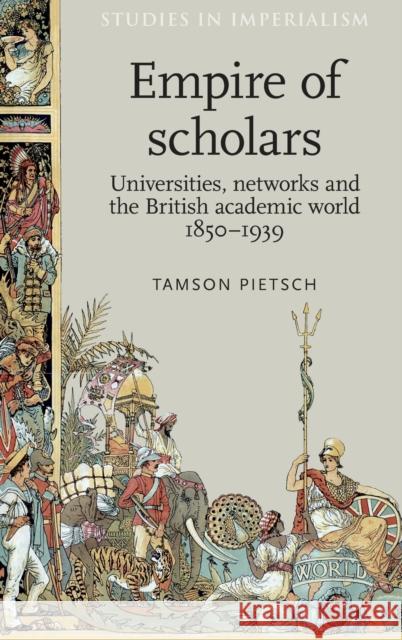Empire of Scholars: Universities, Networks and the British Academic World, 1850-1939 » książka
Empire of Scholars: Universities, Networks and the British Academic World, 1850-1939
ISBN-13: 9780719085024 / Angielski / Twarda / 2013 / 256 str.
Empire of Scholars: Universities, Networks and the British Academic World, 1850-1939
ISBN-13: 9780719085024 / Angielski / Twarda / 2013 / 256 str.
(netto: 414,80 VAT: 5%)
Najniższa cena z 30 dni: 432,86
ok. 30 dni roboczych.
Darmowa dostawa!
At the start of the twenty-first century we are acutely conscious that universities operate within an entangled world of international scholarly connection. Empire of scholars examines the networks that linked academics in Britain and the settler world in the age of 'Victorian' globalisation. Stretching across the globe these networks helped map an expansive but exclusionary 'British academic world' that extended beyond the borders of the British Isles. The universities established in Britain's settler colonies in the middle part of the nineteenth century were initially local affairs, founded by self-confident settler elites who saw them as symbols of colonial maturity. But in the 1880s these institutions began to look for new ways to connect with scholarship in Britain, instituting travelling scholarship schemes, leave of absence programmes and appointments practices that enabled academics to forge personal and informal ties that straddled the distances of empire. These networks were crucial to ways settler universities operated and central to the making of knowledge in them, but they were also highly raced and gendered. If the boundaries of the British academic world were expansive, its contours were shifting and uneven. Drawing on extensive archival research conducted in the United Kingdom, Canada, Australia, New Zealand and South Africa, this book remaps the intellectual geographies of Britain and its empire in the late nineteenth and early twentieth centuries. In doing so, it provides a new context for writing the history of ideas and offers a critical analysis of the connections that helped fashion the global world of universities today.











